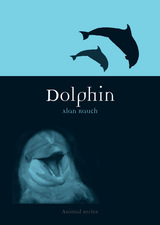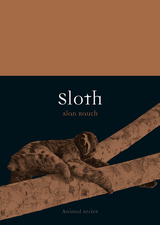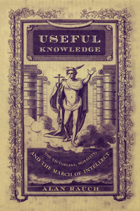3 books about Rauch, Alan

Dolphin
Alan Rauch
Reaktion Books, 2014
From Flipper to SeaWorld, dolphins have long captured our hearts. We love these friendly, intelligent mammals, and they seem to return our feelings—they enjoy interacting with swimmers and have been known to encircle people under attack by sharks. Despite our familiarity with dolphins, though, we remain ill-informed about how they evolved, how they function, and how they have interacted with humans for millennia. Dolphin dives into the dolphin’s zoology, as well as its social and cultural history, to offer a comprehensive view of these delightful creatures.
[more]

Sloth
Alan Rauch
Reaktion Books, 2023
A richly illustrated cultural and natural history of the lethargic animal—from prehistoric ancestry to modern-day memes.
Sloths are perhaps the most recognized and loved Central and South American animals, but they are not well understood. This book offers a colorful and wide-ranging biological and cultural history of these fascinating mammals. Alan Rauch explores how today’s lethargic sloths evolved from gigantic prehistoric ancestors and earned their deadly, sinful names. In praise of both these beautiful creatures and their status as icons of a stress-free life, this book shows just how fascinating, engaging, and (more often than not) inspiring these animals can be.
Sloths are perhaps the most recognized and loved Central and South American animals, but they are not well understood. This book offers a colorful and wide-ranging biological and cultural history of these fascinating mammals. Alan Rauch explores how today’s lethargic sloths evolved from gigantic prehistoric ancestors and earned their deadly, sinful names. In praise of both these beautiful creatures and their status as icons of a stress-free life, this book shows just how fascinating, engaging, and (more often than not) inspiring these animals can be.
[more]

Useful Knowledge
The Victorians, Morality, and the March of Intellect
Alan Rauch
Duke University Press, 2001
Nineteenth-century England witnessed an unprecedented increase in the number of publications and institutions devoted to the creation and the dissemination of knowledge: encyclopedias, scientific periodicals, instruction manuals, scientific societies, children’s literature, mechanics’ institutes, museums of natural history, and lending libraries. In Useful Knowledge Alan Rauch presents a social, cultural, and literary history of this new knowledge industry and traces its relationships within nineteenth-century literature, ending with its eventual confrontation with Charles Darwin’s Origin of Species.
Rauch discusses both the influence and the ideology of knowledge in terms of how it affected nineteenth-century anxieties about moral responsibility and religious beliefs. Drawing on a wide array of literary, scientific, and popular works of the period, the book focusses on the growing importance of scientific knowledge and its impact on Victorian culture. From discussions of Jane Webb Loudon’s The Mummy! and Mary Shelley’s Frankenstein, to Charlotte Brontë’s The Professor, Charles Kingsley’s Alton Locke, and George Eliot’s Mill on the Floss, Rauch paints a fascinating picture of nineteenth-century culture and addresses issues related to the proliferation of knowledge and the moral issues of this time period. Useful Knowledge touches on social and cultural anxieties that offer both historical and contemporary insights on our ongoing preoccupation with knowledge.
Useful Knowledge will appeal to readers interested in nineteenth century history, literature, culture, the mediation of knowledge, and the history of science.
Rauch discusses both the influence and the ideology of knowledge in terms of how it affected nineteenth-century anxieties about moral responsibility and religious beliefs. Drawing on a wide array of literary, scientific, and popular works of the period, the book focusses on the growing importance of scientific knowledge and its impact on Victorian culture. From discussions of Jane Webb Loudon’s The Mummy! and Mary Shelley’s Frankenstein, to Charlotte Brontë’s The Professor, Charles Kingsley’s Alton Locke, and George Eliot’s Mill on the Floss, Rauch paints a fascinating picture of nineteenth-century culture and addresses issues related to the proliferation of knowledge and the moral issues of this time period. Useful Knowledge touches on social and cultural anxieties that offer both historical and contemporary insights on our ongoing preoccupation with knowledge.
Useful Knowledge will appeal to readers interested in nineteenth century history, literature, culture, the mediation of knowledge, and the history of science.
[more]
READERS
Browse our collection.
PUBLISHERS
See BiblioVault's publisher services.
STUDENT SERVICES
Files for college accessibility offices.
UChicago Accessibility Resources
home | accessibility | search | about | contact us
BiblioVault ® 2001 - 2024
The University of Chicago Press









